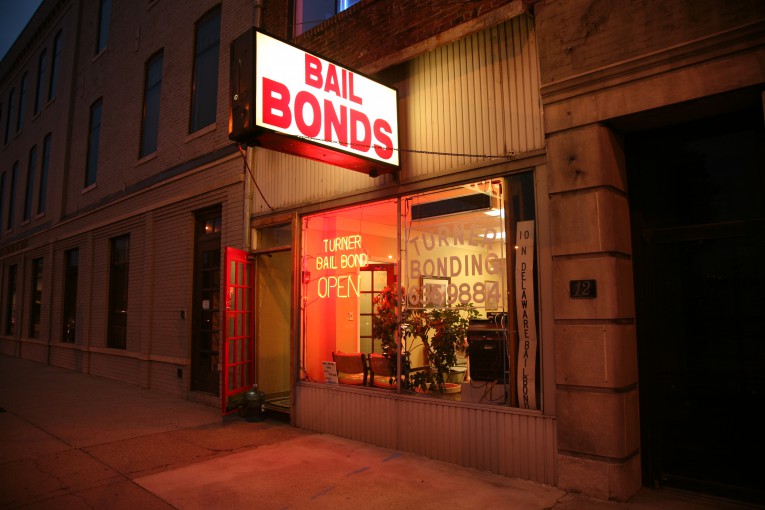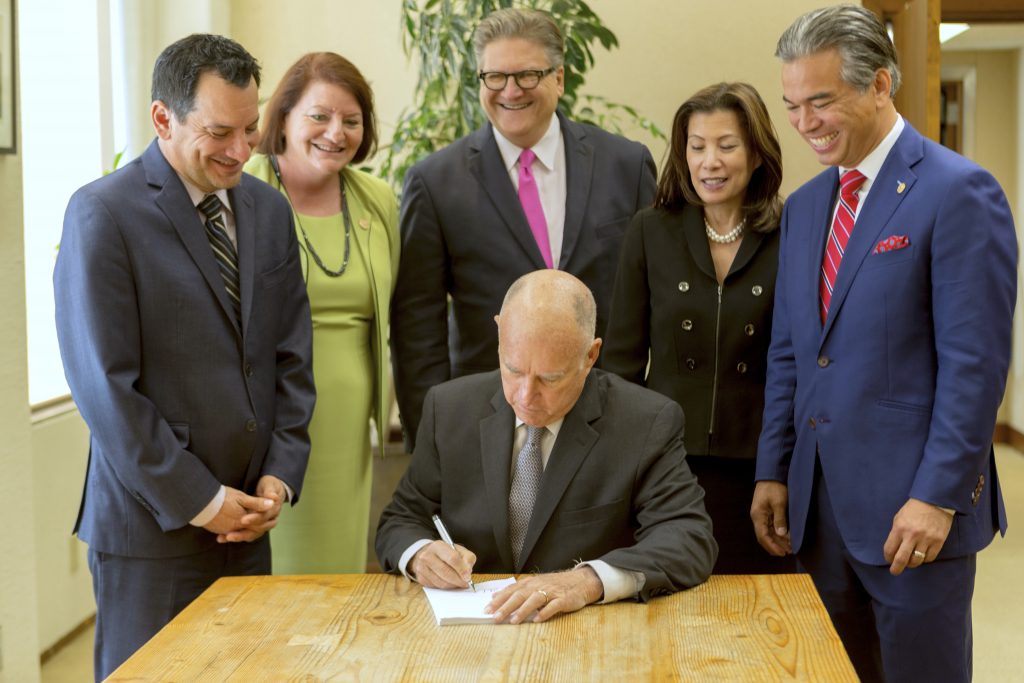

The bail industry announced on Wednesday that they had enough signatures to qualify a ballot initiative that puts SB 10 on hold until voters can vote on it in November 2020.
Senator Bob Hertzberg, one of the bill’s sponsors, said in a statement that he was confident that SB 10 would remain “the law of the land.”
“The bail industry has shown that they will say, do, or pay whatever it takes to protect their antiquated, ineffective scheme,” the senator said. “We know that private equity firms poured hundreds of thousands of dollars into this campaign – not to protect public safety, or decrease the number of innocent people in jail, but to protect their bottom line.”
He added, “SB 10 was supported by all three branches of government, reform advocates, public safety officers, and workers.”
Assemblymember Rob Bonta, who sponsored the Assembly counterpart to SB 10 added, “The money bail industry is desperately trying to hang on and buy themselves more time. But even they see the writing on the wall. Money bail is wrong. It’s unjust. It doesn’t promote public safety and it ruins lives.”

He added, “Our bail reform law, SB 10, replaces the money bail system with a better system that individually assesses a person’s ability to be released pre-trial based on their risk to the public and their likelihood of showing up in court—not on how much money they have.
“When the time comes for voters to make their decision, I feel strongly that Californians will see through the bail industry’s transparent effort to prop up an unsafe, unjust, unfair, predatory for-profit system that hurts people.”
But progressive groups and leaders were concerned with aspects of the bill to begin with – particularly provisions that allowed a judge to use risk assessment metrics to determine whether someone was released or held in custody. The ACLU and others pulled their support, believing that the law could simply replace bail with detention.
The ACLU in a joint statement by the three executive directors of the ACLU of California affiliates: Abdi Soltani (Northern California), Hector Villagra (Southern California), and Norma Chávez Peterson (San Diego & Imperial Counties), argued, “Everyone deserves equal justice and equal protection under the law. But there is no denying that the bail industry hurts California families. Its existence is antithetical to our values of justice, fairness, and racial equity.
“By charging people nonrefundable fees for pretrial release, the bail industry has made billions of dollars off the backs of individuals and families in dire circumstances, especially people most affected by racial and economic inequities in our society and the criminal justice system,” they said. “We must reject the wealth-based, two-tiered system of justice that the bail industry seeks to preserve.”

San Francisco Public Defender Jeff Adachi has been one of the leading critics of the money bail system. He called this move “expected.” But he was hopeful that it would force the supporters of SB 10 to “correct some of the problems with the legislation in order to win back the support of progressive leaders.”
He added, “It’s even more important, given the fact that SB 10 has been suspended, that we fully and successfully litigate against money bail.”
There is litigation both before the California Supreme Court and in Federal Court. The California Supreme Court will be hearing the case shortly.
In a San Francisco case involving Kenneth Humphrey, the First District Court of Appeal in San Francisco ruled that his $350,000 bail was excessive and unfair because he could not afford to pay it.
“A defendant may not be imprisoned solely due to poverty,” Presiding Justice J. Anthony Kline said in a 3-0 decision that ordered a new bail hearing. The judge also wrote that a judge must determine how much bail Mr. Humphrey could afford and whether he could be released safely without bail.
That ruling represented a major victory for advocates of reform.
A court ruling in that case is likely to overturn money bail in California because the Supreme Court Chief Justice Tani Cantil-Sakauye has already stated publicly that she is a critic of cash bail, as it fails to promote public safety and is unfair to poor people, who under the system remain in jail while wealthier defendants charged with the same crimes can buy their freedom while awaiting trial.
Jeff Adachi was also very optimistic on the federal court front, noting, “The judge asked some good questions. We’re hoping that she declares money bail unconstitutional.”
Meanwhile, at the legislative level, the ballot initiative now gives the legislature time to come back and make further alterations.
Mr. Adachi explained, “We submitted a number of things we would like to see.”
As to whether he would support or oppose this effort, he said, “We have a number of concerns. Obviously we see the elimination of money bail as a positive first step. But we don’t want to replace it with a system that would essentially allow judges to do the same thing by using preventive detention as means of keeping people in custody – particularly poor people and people of color.”
—David M. Greenwald reporting

